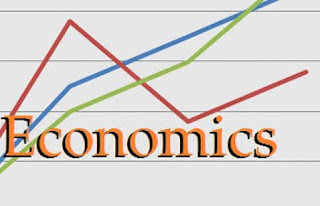What is the Meaning of Opportunity Cost:?
Opportunity cost means the alternative foregone or sacrifice made in order to satisfy another want. It refers to the need that is left unsatisfied in order to satisfy another more pressing need.

For instance, if a student’s scale of preference is the cost of the book, pen and sneakers bought are the shirt, jeans and headphone he had left unbought.
The shirt, jeans and headphone that were left unsatisfied or unbought are known as alternative, forgone or sacrificed alternatives. This alternative forgone or sacrificed is known in Economics as opportunity cost or real cost or true cost.
Importance of Opportunity Cost to A Firm, Government and An Individual
Opportunity cost like other basic concepts of Economics – scarcity, scale of preference and choice is important to an individual who represents the consumer or household, or firm or productive unit and the government that form the three decision making bodies in an economy.
The concept of opportunity cost arises from choice which is central to the subject-matter of economics and this arises as a result of the limited available resources vis-a-vis unlimited human wants. Since every economic problem involves choice and every choice involves opportunity cost, therefore, opportunity cost is very important.
Also, opportunity cost is important because it involves allocation of scarce resources to pressing areas of needs. It also shows that every activity involves a sacrifice whether on the side of an individual, a firm or government.
To an individual who aims at maximising his utility from his limited available resources, he will have to allocate these limited resources to those wants that are more important. Opportunity cost helps the individual to make judicious use of his scarce resources.
For instance, an individual farmer who have a piece of land and two different types of crops like yam and cassava will plant either of them since he may not plant the two on the same land at the same time. If he grows cassava because of the present economic position of garri, the opportunity cost of cassava is the yam he has sacrificed or forgone to plant.
Opportunity cost is also important to a firm because the firm has to choose to allocate its limited available raw materials in the production of a particular product with high demand at the expense of other products with low demand in order to enable it to maximise profit.
To a government, opportunity cost helps it in the preparation of its budget. The government will therefore, decide the sector it will allocate more resources. Government may therefore, allocate more resources to education at the expense of other sectors.
Opportunity cost also aids a government in policy making. Finally, all said and done, there is an element of opportunity cost in the activities of an individual, a firm and a government.
Relevance of the Concept of Opportunity Cost to the Economy
The concept of opportunity cost is relevant to the Economies of everyq Countries. The concept emphasizes the basic problem of choice which is the core of the subject matter of Economics as a result of the limited available resources vis-a-vis unlimited human wants.
Since every economic problem involves choice and every choice involves opportunity cost, therefore, opportunity cost is relevant to the economies of West African countries.
Also, the concept is relevant because it involves allocation of scarce resources to pressing areas of need. It also shows that every activity involves a sacrifice whether on the side of an individual, a firm or a government.